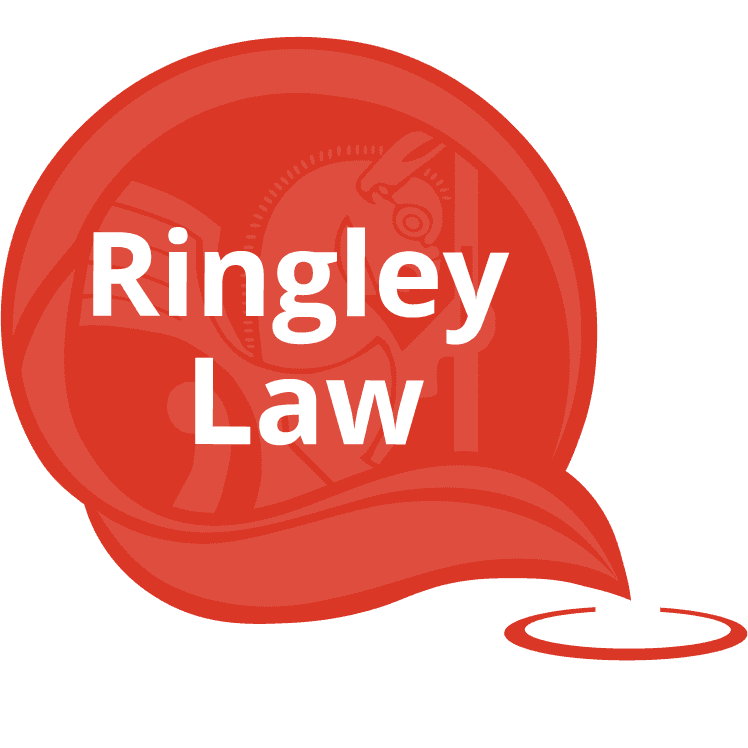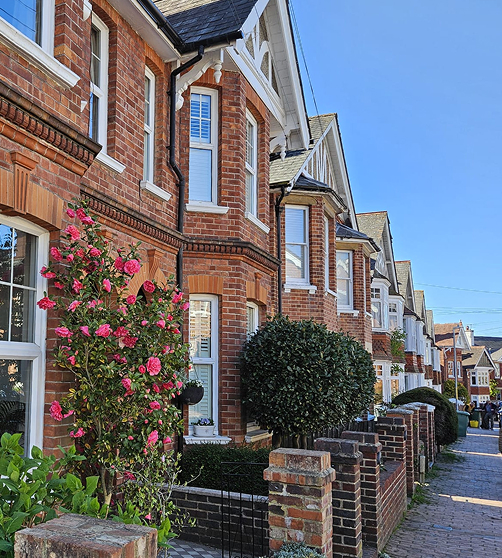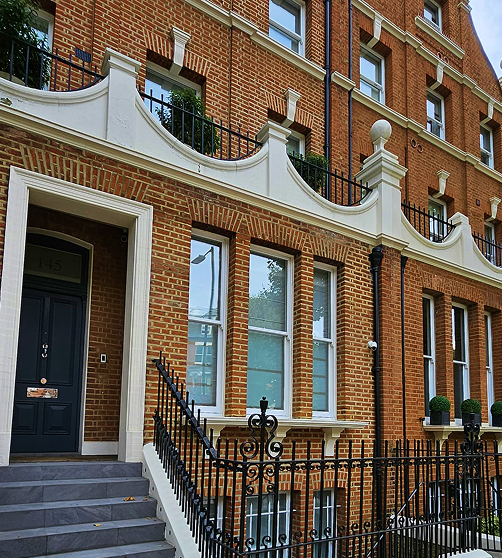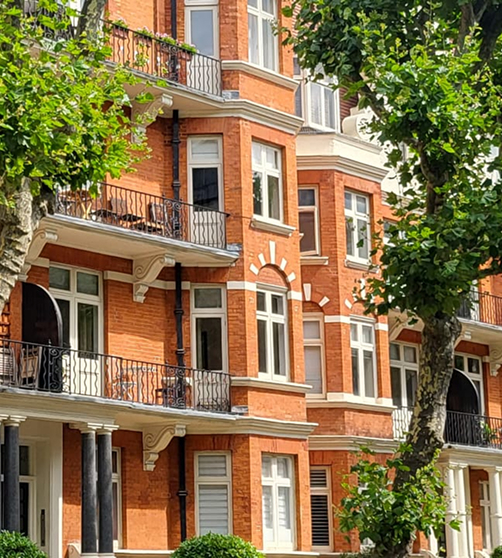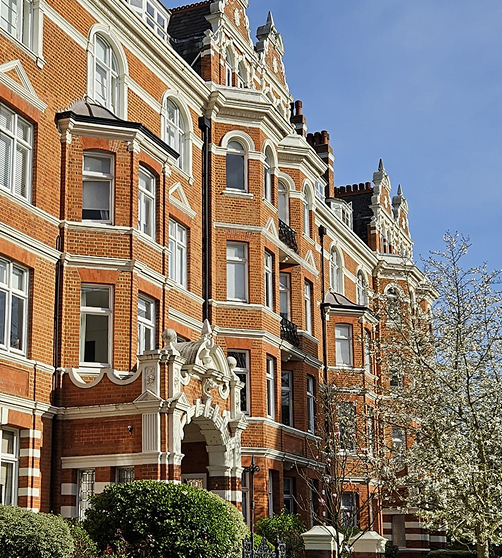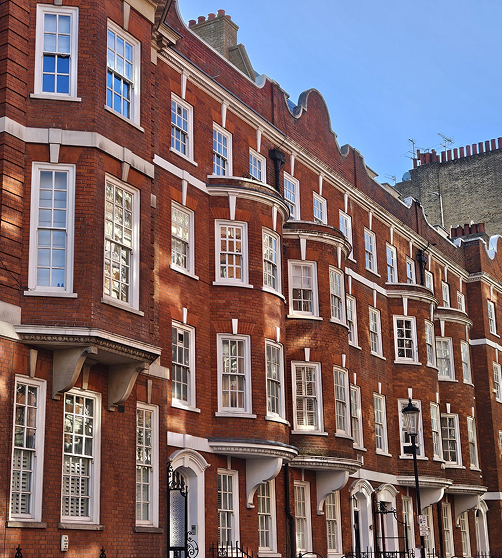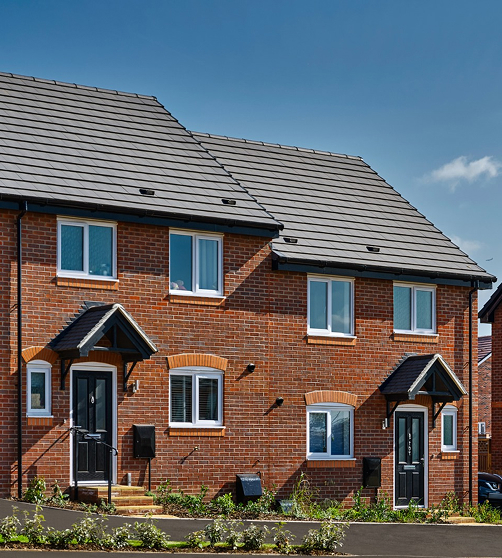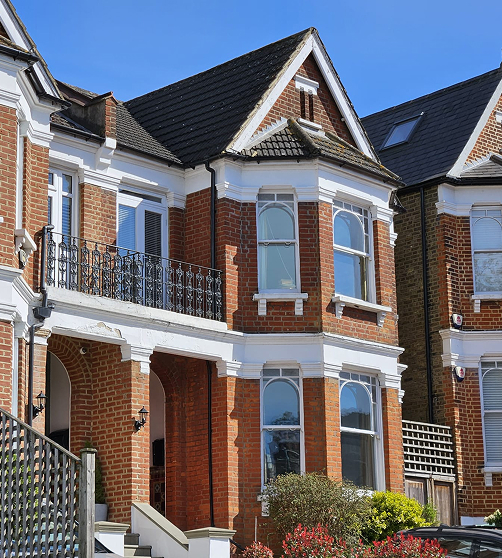For easier onward management granting 999 year modernised leases with no ground rent will stand you in good stead
“For easier onward management granting 999 year modernised leases with no ground rent will stand you in good stead”
Freehold purchase or leasehold enfranchisement requires participation from at least 51% of long leaseholders who, by paying a premium, can buy the freehold of their block. This is provided any commercial area does not exceed a 25% threshold.
Freehold Purchase
Please note that the House of Lords is currently reviewing the Government's draft Leasehold and Freehold Reform Bill which will (among other things) (i) remove the leaseholder liability for the freeholder's fees and (ii) amend the valuation method to make the premium cheaper for some leaseholders. It is anticipated that this will come into law later this year so it may make to wait for it to come into force. Please contact us if you have any questions
Step 1 - Do you qualify? Check the following 4 points:
Step 2 - Participation
Step 3 - Choose a ‘nominee purchaser’
Step 4 - Obtain a valuation
Step 5 - Serve Section 13 notice
Step 6 - What if the freeholder does not agree to your purchase?
Step 7 - Once the freehold is acquired
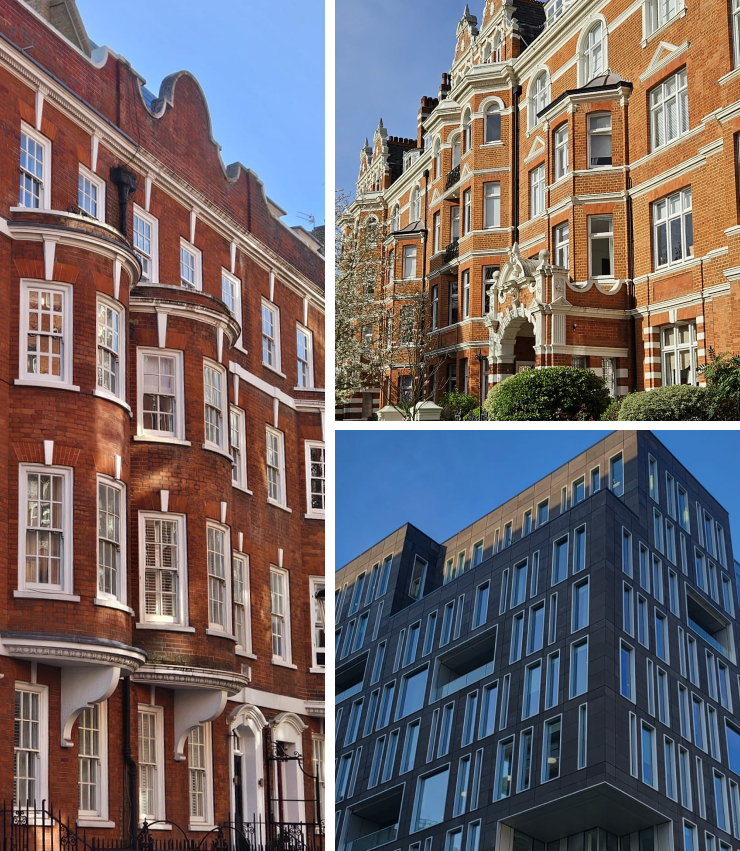
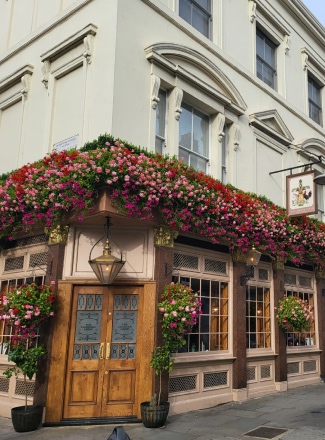
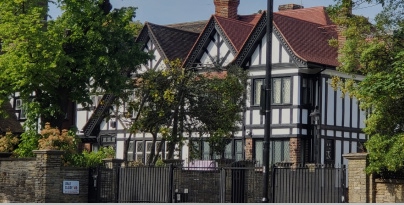
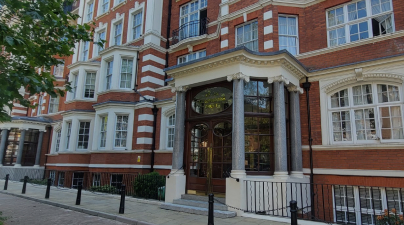
Clubbing together to buy the freehold puts you in charge..... You need 50% of the block on board, and thereafter can grant yourselves long leases and choose the management arrangements that suit you.
Freehold Purchase
As Solicitors, Ringley Law handle and case manage a broad range of litigation matters including Freehold Purchase maters at both Court and Tribunal. For advocacy we have relationships with all the leading Barristers Chambers to address any points of law. We work with Ringley's Valuation Team to provide the expert witness reports that will be required and case manage all aspects for you.
Freehold purchase management is a great means of having total control over your housing and the land it stands on. It gives the home or property owner the chance to manage any repairs, alterations, or changes to the property without needing prior agreement from another party.
As the legal owner of both the property and the land, it falls onto you to make sure that everything is kept in good order and up to scratch. That can be an important consideration when looking at potential properties – as well as finding out if the freehold is for sale, you should also research what kind of upkeep and maintenance is required for the property in question.
What is Freehold Purchase?
Freehold purchase is the process of buying a freehold property. It's one of the most common ways to buy a property in the UK.
When you buy a freehold property, you become the legal owner of the property and the land it stands on. You also become responsible for all the upkeep and maintenance of the property.
There are a few things to consider before you buy a freehold property.
First, you'll need to find out if the freehold is for sale. You can do this by checking with your local council or searching online.
If you're interested in buying a freehold property, you'll need to get in touch with the current owner and negotiate a price.
Once you've agreed on a price, the sale will go through and you'll become the new owner of the freehold. You'll then be responsible for all the upkeep and maintenance of the property.
It's important to note that freehold purchase is a legal process. You'll need to get in touch with a solicitor and make sure everything is in order before you buy the freehold property.
Is it worth buying the freehold?
If you're buying a home, the freehold is usually always the best choice since there's no need to pay extra for the land on which it's built. If you own a flat, there are things to consider before purchasing the freehold, such as whether the freeholder is liable for common areas and facilities.
When it comes to a block of flats, you can't buy the freehold on your flat by yourself. Everyone in your block of flats must agree to purchase a portion of the overall freehold. Furthermore, even if you all banded together to purchase the freehold, you'll still have to pay service costs because the property still needs to be maintained and insured.
What is Leasehold enfranchisement?
Leasehold enfranchisement is the process of freeholders gaining the right to buy the freehold of their property from the landlord. This can be an important consideration if you're looking to buy a freehold property, as it gives you more control over your property.
If you're not sure whether freehold purchase is appropriate for you, contact us for assistance; and we'll be able to assist you with the procedure and answer any questions you have.
What are the benefits of a freehold purchase?
There are a few benefits of buying a freehold property:
1. Control over your property
3. Reduced maintenance costs
2. No landlord interference
4. Increased property value
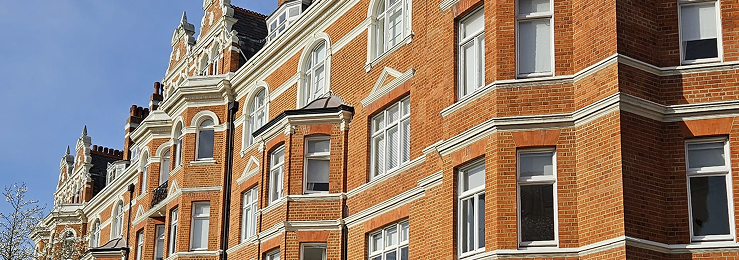



Can you turn leasehold into freehold?
If you're a leaseholder and want to purchase the freehold of your property, you can go through the process of leasehold enfranchisement. This is the procedure by which freeholders acquire the ability to buy the freehold of their property from the landlord.
Freehold purchase or leasehold enfranchisement requires participation from at least 51% of long leaseholders who, by paying a premium, can buy the freehold of their block. This is provided any commercial area does not exceed a 25% threshold.
Please note that the House of Lords is currently reviewing the Government's draft Leasehold and Freehold Reform Bill which will (among other things) (i) remove the leaseholder liability for the freeholder's fees and (ii) amend the valuation method to make the premium cheaper for some leaseholders. It is anticipated that this will come into law later this year so it may make to wait for it to come into force. Please contact us if you have any questions
-
Step 1 - Do you qualify? Check the following 4 points:
Are you flat owners? Make use of the Leasehold Reform, Housing and Urban Development Act 1993 and buy freehold of the building.
- Is your flat in:
- a self-contained building (ie, structurally detached),or
- a self-contained part of a building (ie, capable of being redeveloped independently of the remainder of the building)?
- Does the building have at least two flats?
- Is non-residential part of the building 25% or less of the total floor space (internal floor area excluding common parts) of the building?
- Do at least two thirds of the flat owners of the building own long leases (ie, typically with terms of more than 21 years when they were first granted)?
If your answer is yes to all 4 questions, you qualify. Even if you don’t reside in the flat, you are still entitled to buy under the Act.
- Is your flat in:
-
Step 2 – Participation
Once qualifying leaseholders of at least 50% of the flats in the building have agreed to the buyout, you can proceed to buy the freehold. If there are only two flats in the building, both flat owners must agree to buy the freehold.
-
Step 3 – Choose a ‘nominee purchaser’
You will need to decide how you as a group are going to purchase the freehold. You can either nominate yourself, a fellow flat owner or the freehold company which you have set up for this purpose. The nominated person or company will be the ‘nominee purchaser’.
-
Step 4 – Obtain a valuation
You initiate the purchase process by serving a ‘section 13 notice’ (see below) on the freeholder of the property. You have to state the purchase price on the notice. Therefore you should obtain a freehold valuation before serving the notice.
-
Step 5 – Serve section 13 notice
Once you have obtained the valuation, you will then serve a ‘section 13 notice’ on the freeholder, advising that you and other flat owners are buying the freehold. You may choose to negotiate your freehold purchase with the freeholder before serving the notice. Once you have served the notice:
- You should register this with the Land Registry.
- You will have to pay the freeholder’s ‘reasonable’ professional costs.
The freeholder has two months to respond to the notice by serving a counter-notice. The freeholder may:
- Take no action and do not respond;
- Issue a Counter Notice accepting your purchase at your stated purchase price; or
- Issue a Counter Notice disputing your purchase or your stated purchase price.
- What if the freeholder is missing? If the freeholder is missing, you can apply to the First-Tier Tribunal(Property Chamber) to make an order of sale or a vesting order. You will need to take steps to trace the freeholder before making such application.
-
Step 6 – What if the freeholder does not agree to your purchase?
The freeholder may dispute your proposed purchase. Such challenges could include:
- An error in the section 13 notice;
- The property is not a self contained building;
- Any commercial element in the Property exceeds 25% of the floor area;(internal floor area excluding common parts)
- There are not enough flats on long leases
If the freeholder does not agree to your purchase on an amicable basis, you can apply to the First-Tier Tribunal(Property Chamber).
-
Step 7 – Once the freehold is acquired
You will need to decide whether you wish to manage the property yourselves or hire managing agents. The Ringley Group offers property management services. Visit Ringley Chartered Surveyors website
As Solicitors, Ringley Law handle and case manage a broad range of litigation matters including Freehold Purchase maters at both Court and Tribunal. For advocacy we have relationships with all the leading Barristers Chambers to address any points of law. We work with Ringley's Valuation Team to provide the expert witness reports that will be required and case manage all aspects for you.
Freehold purchase management is a great means of having total control over your housing and the land it stands on. It gives the home or property owner the chance to manage any repairs, alterations, or changes to the property without needing prior agreement from another party.
As the legal owner of both the property and the land, it falls onto you to make sure that everything is kept in good order and up to scratch. That can be an important consideration when looking at potential properties – as well as finding out if the freehold is for sale, you should also research what kind of upkeep and maintenance is required for the property in question.
What is freehold purchase?
Freehold purchase is the process of buying a freehold property. It's one of the most common ways to buy a property in the UK.
When you buy a freehold property, you become the legal owner of the property and the land it stands on. You also become responsible for all the upkeep and maintenance of the property.
There are a few things to consider before you buy a freehold property.
First, you'll need to find out if the freehold is for sale. You can do this by checking with your local council or searching online.
If you're interested in buying a freehold property, you'll need to get in touch with the current owner and negotiate a price.
Once you've agreed on a price, the sale will go through and you'll become the new owner of the freehold. You'll then be responsible for all the upkeep and maintenance of the property.
It's important to note that freehold purchase is a legal process. You'll need to get in touch with a solicitor and make sure everything is in order before you buy the freehold property.
Is it worth buying my freehold?
If you're buying a home, the freehold is usually always the best choice since there's no need to pay extra for the land on which it's built. If you own a flat, there are things to consider before purchasing the freehold, such as whether the freeholder is liable for common areas and facilities.
When it comes to a block of flats, you can't buy the freehold on your flat by yourself. Everyone in your block of flats must agree to purchase a portion of the overall freehold. Furthermore, even if you all banded together to purchase the freehold, you'll still have to pay service costs because the property still needs to be maintained and insured.
What is Leasehold enfranchisement?
Leasehold enfranchisement is the process of freeholders gaining the right to buy the freehold of their property from the landlord. This can be an important consideration if you're looking to buy a freehold property, as it gives you more control over your property.
If you're not sure whether freehold purchase is appropriate for you, contact us for assistance; and we'll be able to assist you with the procedure and answer any questions you have.
What are the benefits of a freehold purchase?
There are a few benefits of buying a freehold property:
-
1. Control over your property
When you buy a freehold property, you become the legal owner of the property and the land it stands on. This gives you more control over your property and the ability to make decisions about its upkeep and maintenance.
-
2. No landlord interference
Since you become the legal owner of the property, you no longer have to worry about landlord interference. This can be important if you're looking for more control over your property.
-
3. Reduced maintenance costs
Since you're responsible for all the upkeep and maintenance of the property, you'll likely see reduced maintenance costs. This can be a great way to save money on property costs.
-
4. Increased property value
Buying a freehold can also increase the value of your property. This is because you have more control over the property and it's less likely to be affected by landlord decisions.
Can you turn leasehold into freehold?
If you're a leaseholder and want to purchase the freehold of your property, you can go through the process of leasehold enfranchisement. This is the procedure by which freeholders acquire the ability to buy the freehold of their property from the landlord.
Clubbing together to buy the freehold puts you in charge.....
You need 50% of the block on board, and thereafter can grant yourselves long leases and choose the management arrangements that suit you.
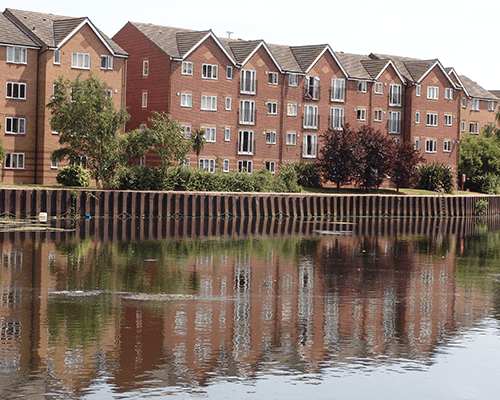
Why not talk to one of our Solicitors today
0207 428 1977
Email Us
